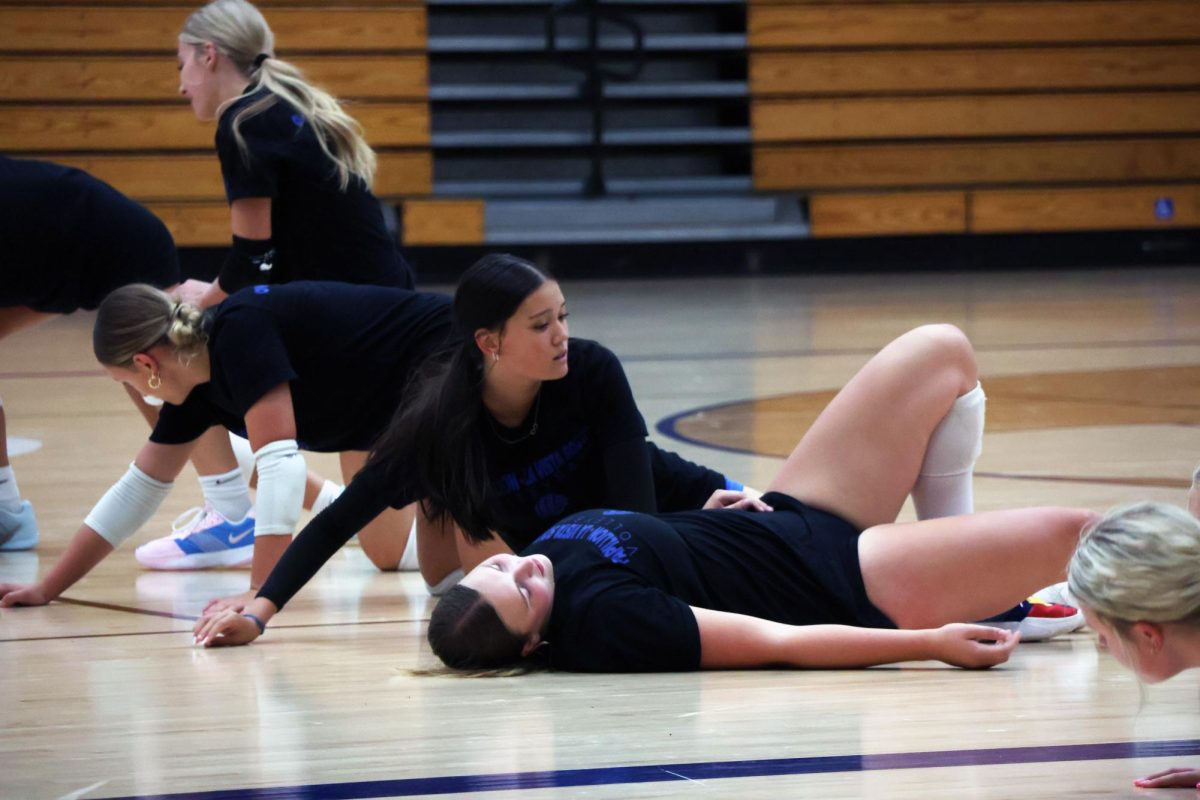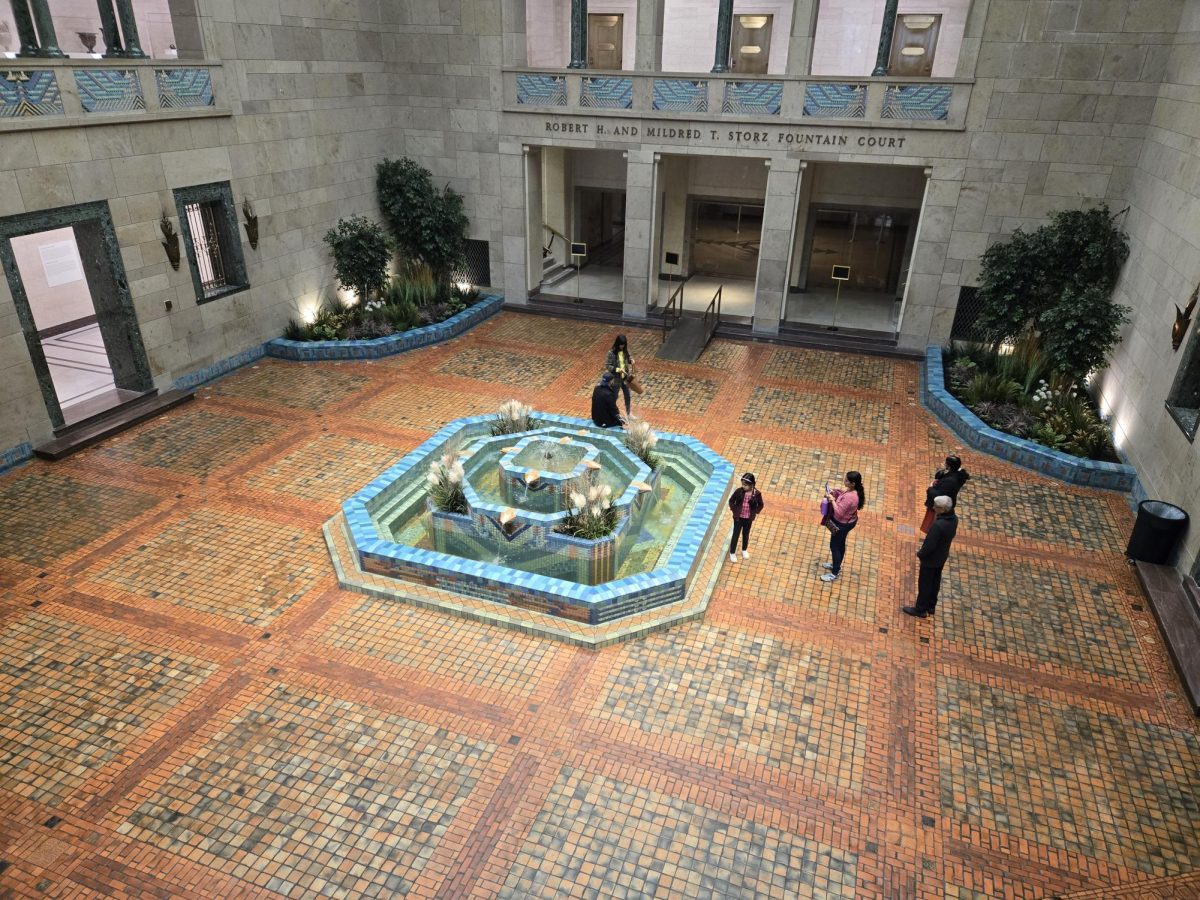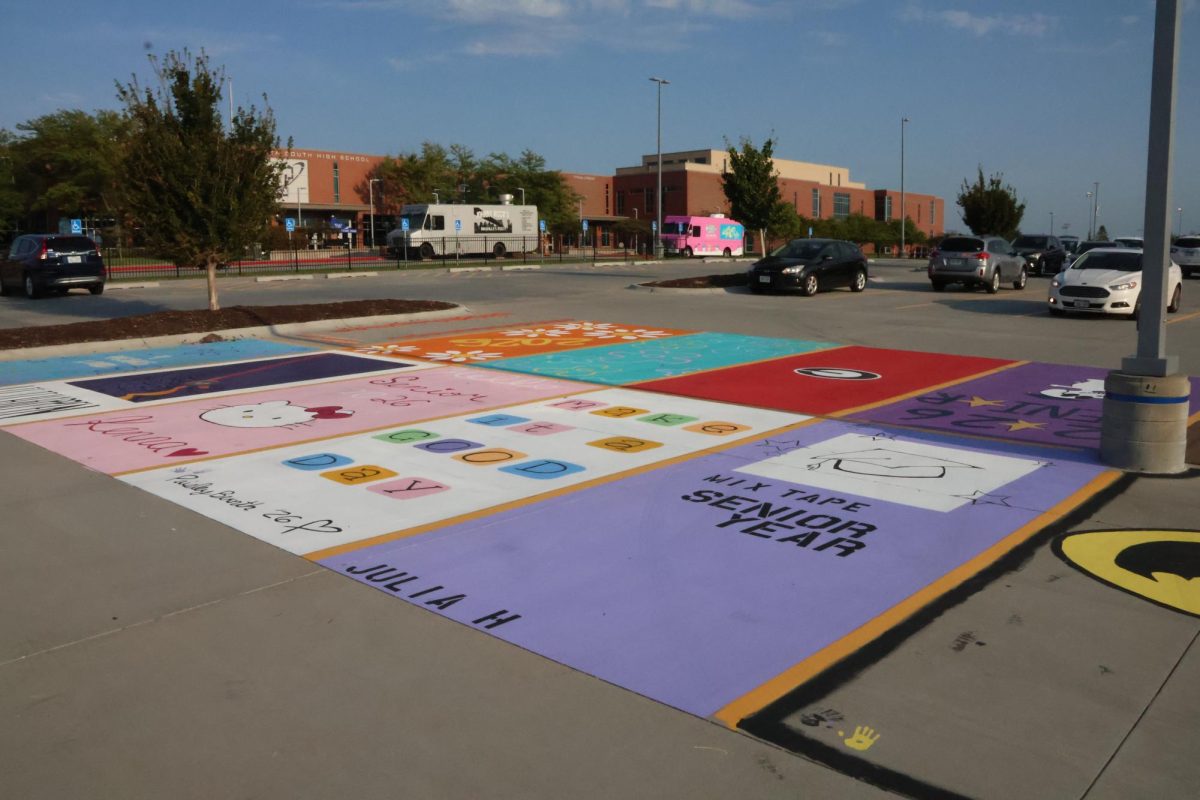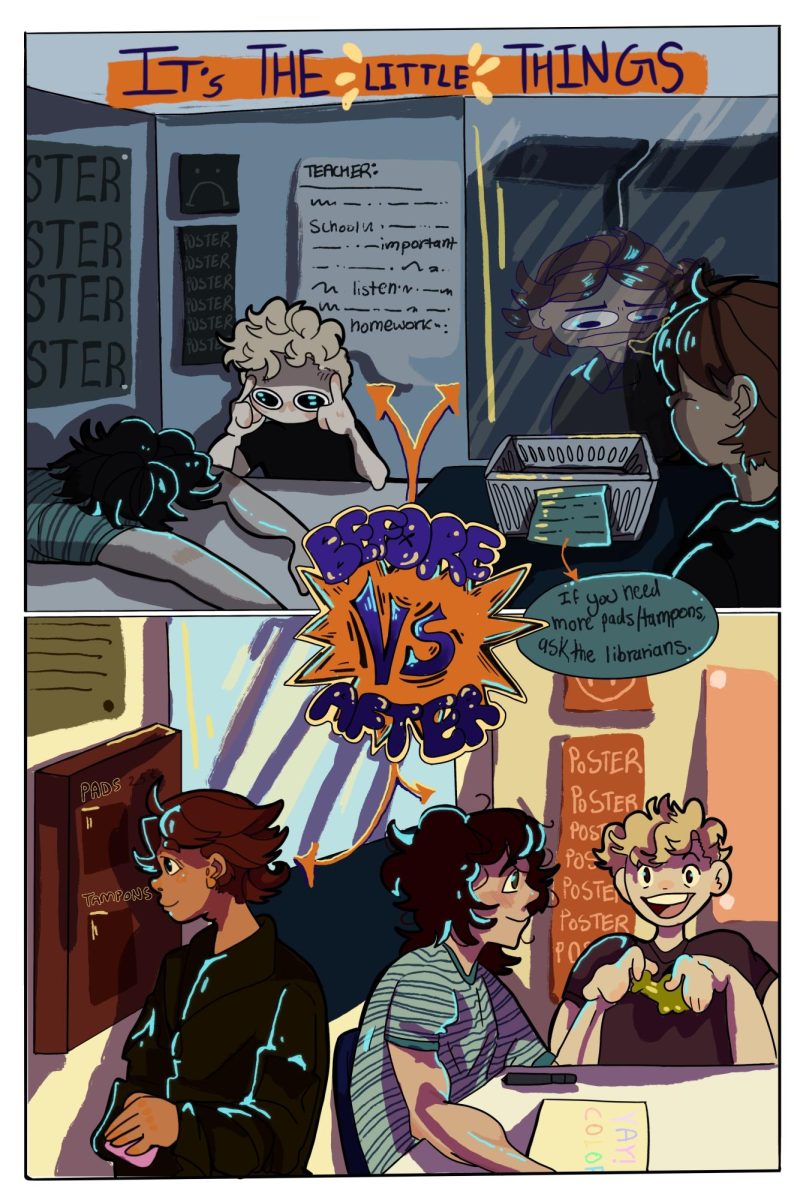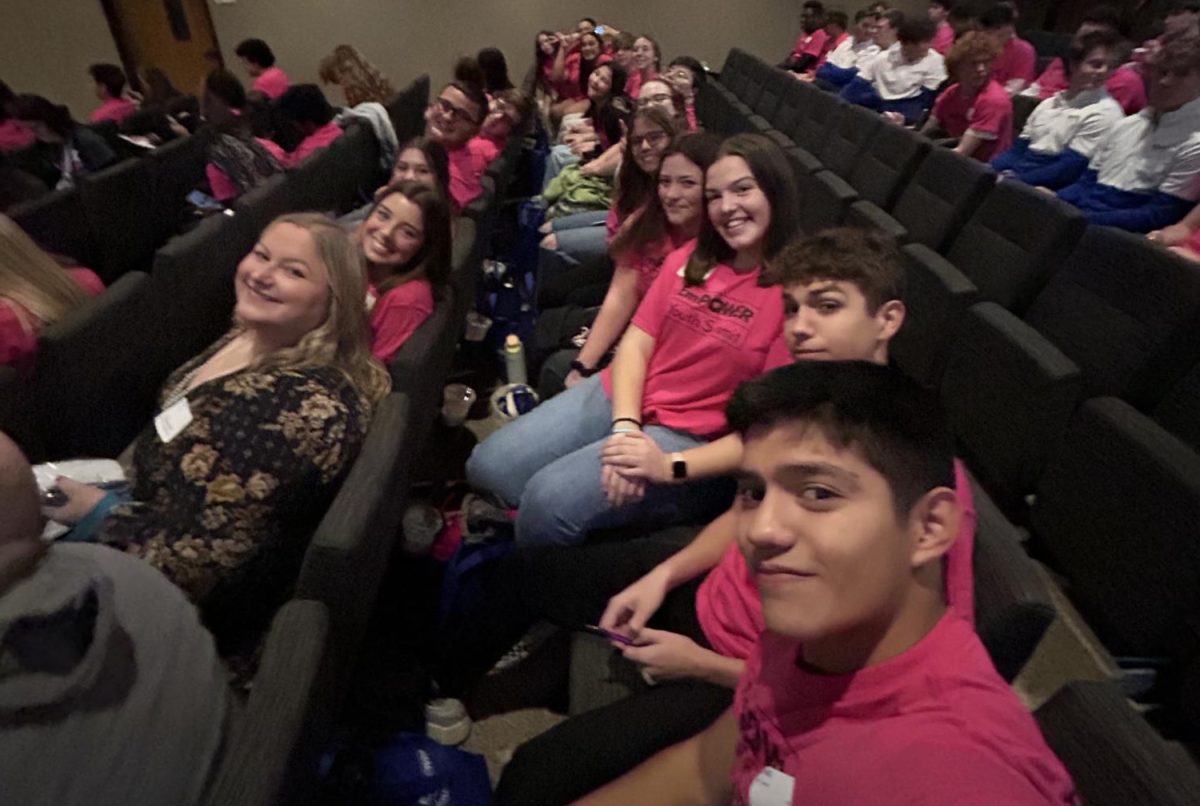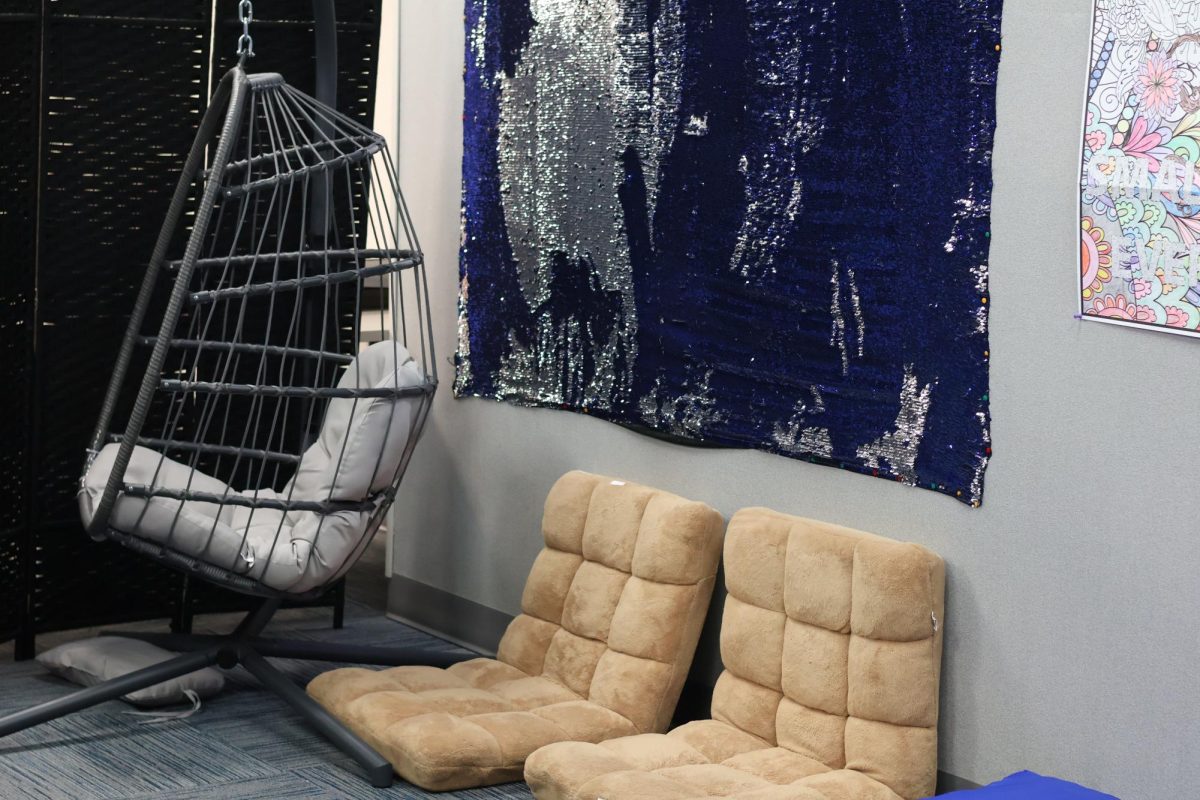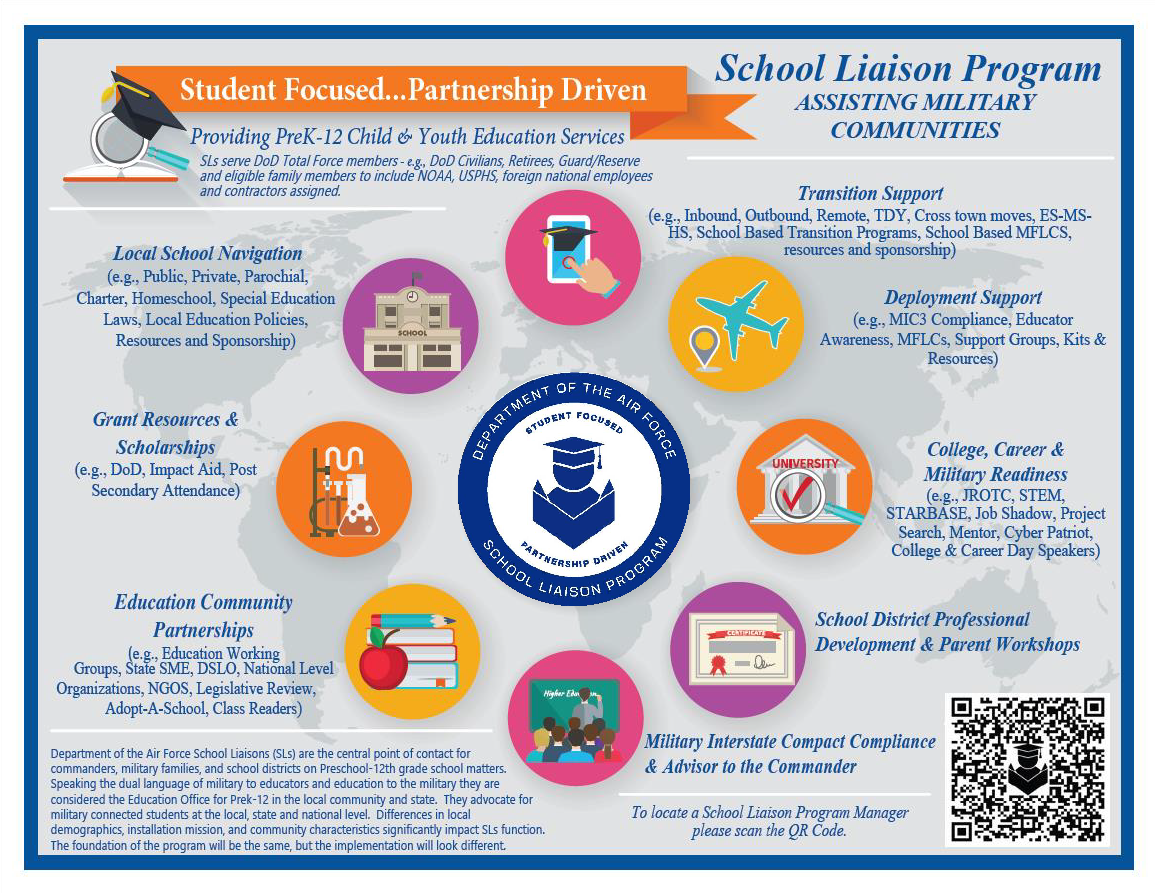Creating safe and healthy learning environments for students is a stated priority of the U.S. education system. Papio South has been searching for ways to create a better learning environment for students. Maslow’s Hierarchy of Needs highlights the needs of students that must be addressed.
The first issues that must be addressed are one’s physiological needs; these include food, water, shelter, sleep, clothing and reproduction. One way that the Nebraska State Legislature has suggested schools can aid in meeting these needs is by providing menstrual products for students in female restrooms.
Menstrual cycle stigmas have resulted in many girls being embarrassed to go through the process of grabbing a menstrual product from their bag and then asking to be excused to go to the restroom to take care of their needs. Not having access to these kinds of products not only creates shame and embarrassment, but it also results in high absentee rates.
A study done by the Journal of School Nursing reported that 33.6% of participants had missed school because of their period. If women don’t have the supplies they need to take care of their reproductive health, then their self-esteem, dignity and well-being can be affected.
The second issues that must be addressed are safety needs; these issues include personal security, resources, health. Many students have to navigate school and mental health diagnoses with limited access to resources regarding the best ways to balance the two, which can damage their self-esteem and self-worth.
Fidget toys are one way of managing mental health and improving focus inside the classroom. Students who suffer from anxiety, ADD, and OCD or Autism benefit greatly from having physical stimuli while they work. The toys might seem at first like their own form of distraction, but teachers report seeing a decline in phone use as well as improvement in student attitudes when fidgets are in play.
When the basic needs of an individual are tended to, they are able to create a strong foundation for their relationships, self-esteem and goals they may have deemed unachievable prior. Caring for students and their basic needs is key to improving student participation and focus in and outside of the classroom, as well as creating the desired classroom environment.


![Pictured above is a structure that displays the names of Nebraska Vietnam veterans in order to “honor [their] courage, sacrifice and devotion to duty and country.”](https://plsouthsidescroll.com/wp-content/uploads/2025/10/Trey_092625_0014-e1760030641144-1200x490.jpg)



